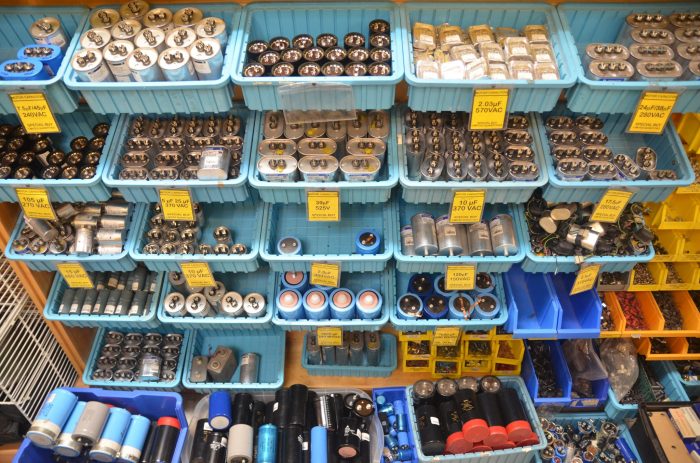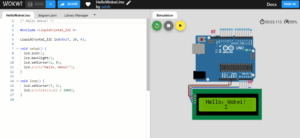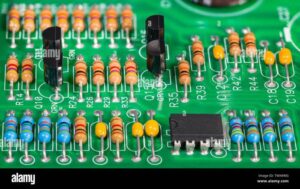In today's tech-driven world, having access to electronic components is crucial for educational institutions aiming to foster innovation and creativity among students. Online electronic component shops provide a vital resource, enabling schools to easily obtain the necessary materials for hands-on science and technology projects. These shops not only enhance the learning experience but also prepare students for the demands of modern careers in STEM fields.
Online shops significantly improve the learning experience by offering a wide array of components at the fingertips of both teachers and students. This accessibility allows for more dynamic lesson plans and project-based learning, which can deepen understanding of complex concepts. Furthermore, the convenience of online shopping means that schools can quickly procure components without lengthy delays or logistical hassles, ensuring that learning can continue uninterrupted.
Features of a Quality Online Electronic Component Shop
When searching for an online electronic component shop, schools should look for several essential features to ensure they are making the best choice for their needs. A user-friendly interface is paramount; teachers and students should be able to navigate the site easily to find what they need without frustration.
Key features to consider include:
- Comprehensive Product Range: A quality shop should offer a wide selection of components, from basic resistors to advanced microcontrollers.
- Customer Service: Excellent support is vital for educational institutions that may face unique challenges or require assistance with product selection.
- Secure Payment Options: Ensuring safe transactions protects school budgets and fosters trust in the shopping experience.
A good online shop often has a responsive customer service team that can address inquiries promptly. This support is especially important in educational settings where teachers may need help with project ideas or troubleshooting technical issues. User-friendly interfaces typically feature intuitive search functions, detailed product descriptions, and customer reviews that facilitate informed purchasing decisions.
Types of Electronic Components Available
Different categories of electronic components play a crucial role in educational settings, allowing students to engage in practical learning experiences. Schools should ensure that their chosen online shop provides a diverse range of components to cater to various project requirements.
Essential components for school projects include:
- Resistors
- Capacitors
- Microcontrollers (such as Arduino and Raspberry Pi)
- Sensors and Modules (e.g., temperature and motion sensors)
- LEDs and Displays
Offering both basic and advanced components is vital, as it accommodates different education levels. Beginners may benefit from starter kits with foundational components, while more advanced students might require specialized parts for complex projects. This diversity ensures that all learners can find materials that match their skill level and project needs.
Cost Considerations and Budgeting for Schools
Budgeting for electronic components can be a challenging task for schools, especially with limited funding. However, effective budgeting strategies can help maximize resources and ensure that schools can procure the necessary materials without financial strain.
Schools can compare pricing structures from various online shops to identify the best deals. Bulk purchasing is often more economical than buying single items, offering potential savings that can be reinvested into educational programs.
Considering factors like shipping costs and potential discounts for educational institutions can further enhance budgeting efforts. Schools should also keep an eye on seasonal sales or promotions from online shops, which can significantly reduce costs.
Educational Resources and Support from Online Shops, ONLINE ELECTRONIC COMPONENT SHOP FOR SCHOOLS
Quality online electronic component shops often provide numerous educational resources that can be invaluable for teachers and students alike. These resources may include tutorials, project ideas, and lesson plans that assist educators in implementing hands-on learning in their classrooms.
Technical support and guidance are equally important. Many shops offer FAQs, live chat options, or help centers that can assist teachers and students with troubleshooting or project planning. Additionally, collaboration with educators can lead to resource sharing and curriculum development that aligns with current educational standards.
Safety and Compliance in Purchasing Electronic Components
When purchasing electronic components, safety and compliance with regulations are paramount. Schools must ensure that all components meet relevant safety standards to protect students and comply with educational regulations.
A checklist for verifying compliance may include:
- Confirming certifications (e.g., CE, RoHS)
- Ensuring components have appropriate labeling for safety
- Reviewing supplier compliance history
Using non-compliant components can lead to safety hazards, negatively impacting student learning experiences and potentially resulting in liability issues for schools. Thus, prioritizing safety in purchasing decisions is critical.
Case Studies of Successful Implementations
Several schools have successfully integrated online purchases of electronic components into their programs, demonstrating the benefits of this approach. For instance, a high school in California used a local online shop to source components for a robotics program, leading to increased student engagement and participation in STEM activities.
Feedback from educators involved in these implementations highlights improved access to materials and enhanced project outcomes. Teachers reported that students were more motivated to learn when they could work with real components, fostering a deeper interest in technology and engineering.
Future Trends in Online Shopping for Electronic Components
The future of purchasing electronic components online is poised for transformation, driven by emerging technologies. Artificial intelligence (AI) is expected to play a significant role in enhancing the shopping experience; for instance, AI could offer personalized recommendations based on previous purchases or browsing behavior, making it easier for schools to find suitable components.
Sustainability initiatives are also likely to influence purchasing decisions. As schools become more environmentally conscious, they may prioritize shops that offer eco-friendly components or sustainable packaging options. This trend not only benefits the planet but also teaches students the importance of sustainability in technology and engineering fields.




